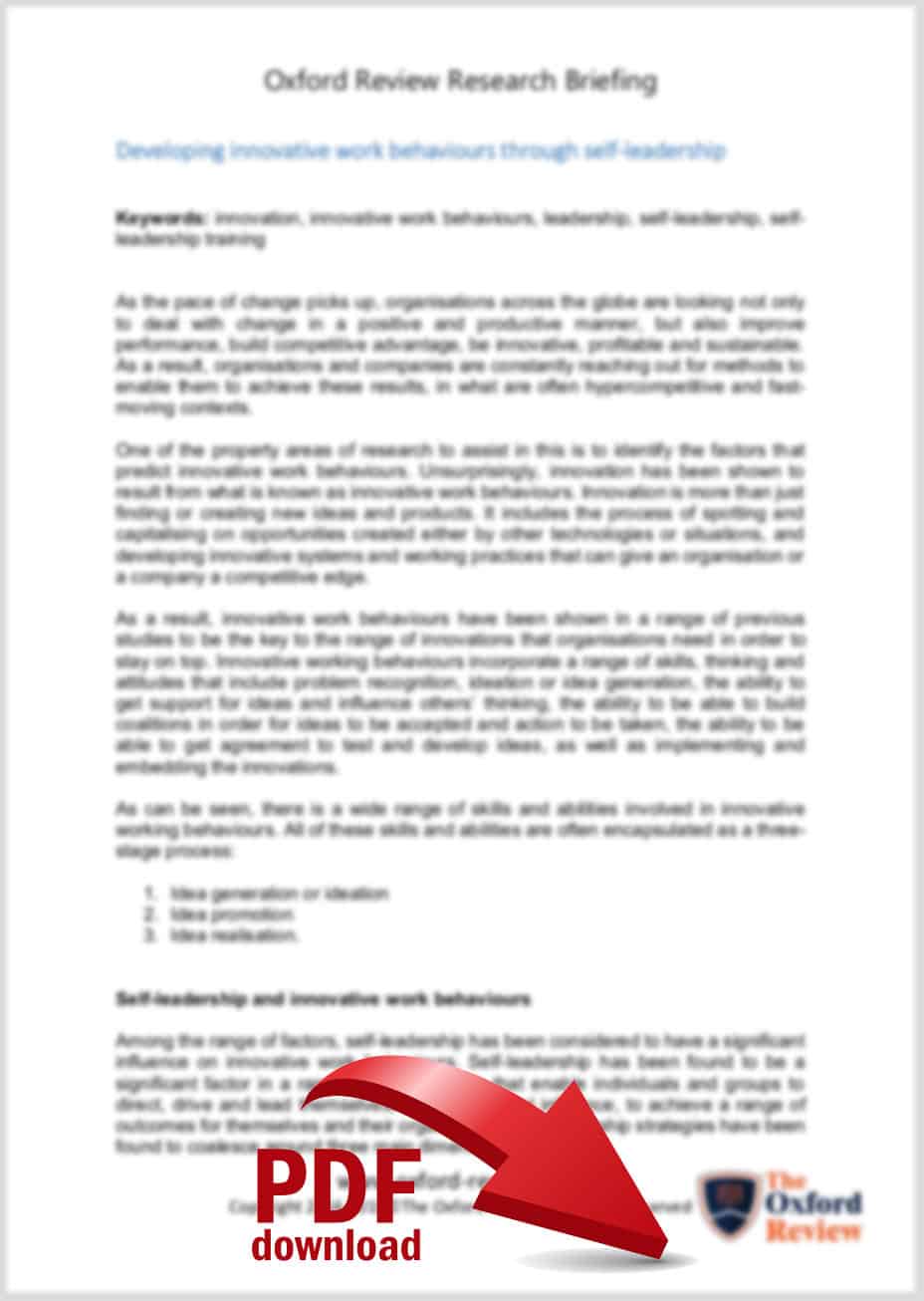Category Archives for "Resources"

Interview with Maya Tamir about her research on Emotions, expectations and behaviour. The linked research briefing can be downloaded here Transcript: David Wilkinson: So, welcome to The Oxford Review video podcast. Today, I’d like to welcome Maya Tamir. She’s in Israel, and she’s done a very interesting paper, you’ve got the briefing about […]
Read more
What is a psychological contract? The term psychological contract refers to the often unspoken set of expectations and assumptions that two parties (employees and the organisation, its leaders and managers) have of each other about things like how they will behave and act. Examples Psychological contract breaches Development of the term References Examples […]
Read more
This week we sent members two brand new research briefings The rise of Positive Organisational Leadership Keywords: positive organisational leadership, leadership, positive organisational scholarship, leadership development, positive deviance, organisational development Positive organisational scholarship is part of the recent interest in positive psychology and positive organisational development and refers to organisational approaches to developing a […]
Read more
This week our members received the following three research briefings… Psychological flexibility The four dilemmas of strategic timing Knowledge management success in organisations The critical importance of psychological flexibility and how it predicts mental health outcomes and resilience Keywords: Psychological inflexibility, Psychological flexibility, cognitive flexibility, cognitive inflexibility, coaching Psychological flexibility refers […]
Read moreA proactive risk taking culture can enhance business performance A study just published has shown that innovation in a proactive, risk taking organisational culture can enhance business performance. The roots of business innovation In the words of the authors “a true entrepreneurial genius is someone who has the capability to experiment with combinations of new […]
Read more
Downloads Home > Work Psychology and Decision-Making Research Briefings (This page) [downloads category=”34005066″] Individual Research Briefings by Category/Topic: Member Home Coaching | HR | L&D | Leadership | Management | OrgDev/Org Change |Work Psychology and Decision-Making Research Briefings Oxford Review Copies Browse Everything in order of publication (ish) Infographics Video Research Briefings
Read more
Last week members received the following research briefings: HR Devolvement Keywords: Human resources, HRM, HR devolvement, line management, training, devolvement, decentralisation One of the trends that is occurring in organisations around the world is the devolvement and decentralisation of HR. Coupled with trends in automation and artificial intelligence (AI), this trend strongly suggests that there […]
Read moreMany people like to use our blog posts, research briefings, special reports and infographics in their own blogs, reports and presentations. We follow the MLA (Modern Language Association) citation rubric. How to reference / cite: Research Briefings Special reports Infographics How to properly cite or reference material from The Oxford Review Research Briefings If the […]
Read more